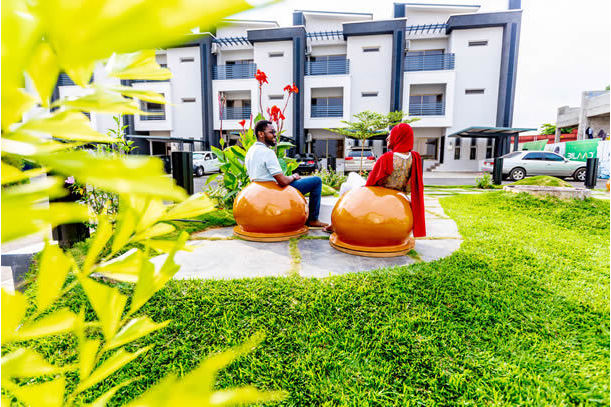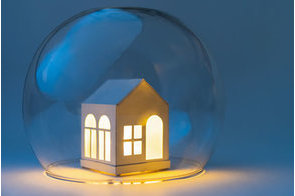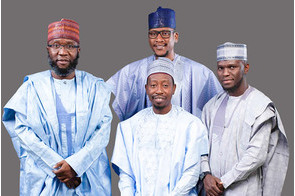Community living

Summary
The question that homebuyers and investors should be asking is whether communal living is a trend that is both commercially viable enough and socially and environmentally sustainable to transcend a small, niche market play.
The most significant shift across property, architecture, and design is arguably the demand for value-led, people-oriented, and sustainable real estate development. The place of people within cities are being rethought. Now, more than ever, people are becoming more abreast of the importance of living in a healthy and nurturing environment that allows us the opportunity to withdraw, interact and refresh ourselves.
Around the world, cities have become the focal point and drivers of economic development. But cities are also the largest consumers of natural resources, for infrastructure projects, residential and commercial real estate, and provision of amenities. As a consequence, cities are among the major sources of ecosystem imbalance and environmental pollution; they are some of the largest contributors of greenhouse gas (GHG) emissions on the planet.
With cities being responsible for substantial environmental degradation, there is need for a paradigm shift in designing them to reduce their negative environmental impact. This redesign has begun with the new ways communities are being designed, and how this is facilitating a new way of connecting people.
It is no surprise that, as the cities are getting ever bigger and becoming more advanced, people are yearning for more meaningful connections with those around them. People desire much more than a place to reside; they want to also belong. A sustainable community goes beyond eco-friendliness, even though environmental sustainability is very important. It is one that promotes individual and collective sense of wellbeing, a place where everyone can thrive, feel inclusive and supported, and be happy. A sustainable community is about people, places, and the healthy relationships they enable.
Communuality
Technology is a major driver of the ‘sharing’ economy, and it has become a major part of our daily existence. Tech companies like Airbnb and Uber represent the vanguard that has significantly altered the way we spend our holidays or travel, and how the experience has become more accessible to people.
Communal living has proven to be a cost-effective alternative in cities where demand for rental properties has continued to spike. The rise of communal living is an attempt to fill a gap in the residential marketplace. However, the question that homebuyers and investors should be asking is whether communal living is a trend that is both commercially viable enough and socially and environmentally sustainable to transcend a small, niche market play.
The word 'community' resonates in both our private and professional lives. It embraces a way of life that is attracting a universal appeal. Although some people may disagree on its significance, what is not contentious, however, is that we all have a sense of when it is present or absent.
This growing need for community, combined with the rise of sustainability – economic, social, and environmental – as a core component in urban development, has led to the advent of an increasing number of master-planned residential estates that seek to offer residents a sustainable, vibrant and livable communities. Whilst some of these offers are merely enticing marketing gimmicks, others are based on genuine attempts to encourage the growth and development of sustainable communities.
Bilaad’s Approach
Many developers have, in their attempts to develop sustainable communities, fixated their attention on how suitable housing, public spaces and facilities within the physical design can provide a basic platform that offer residents the finest opportunities to build community. Some of them have also worked on a broader idea of fostering networks, relationships, capacities and possibilities for social interaction.
Social wellbeing arises from a sense of security, belonging, familiarity, support, neighbourliness, and the integration of a variety of social groups, with an acknowledgement and respect for different cultures, traditions, and backgrounds. These measures for sustainable communities are not exhaustive or mutually exclusive; they are mutually reinforcing and overlapping.
At Bilaad Realty, we have streamlined these measures to simplify the understanding of what constitutes and promotes sustainable communities. We present these measures succinctly below:
• A sustainable community is one where recycling is in the consciousness and facilitated. It promotes minimal ecological impact, minimal waste or pollution, and enhances the natural environment.
• Such communities ensure residents enjoy environmental benefits such as greenery, careful planning for physical and social well-being, and space to walk, cycle, refresh and relax.
• Facility management, community organization and neighbourhood supervision are essential to residents’ comfort, social network, and urban viability. Ensuring well maintained and secured conditions in a community are the prerequisites of a stable, long-term, participative and cohesive community.
• As a rule of thumb, sustainable communities utilize cutting edge technologies in the provision of home-specific and communal security systems. In many cases, remote closed-circuit television surveillance (CCTV) systems are integrated to cater to the safety of every resident and staff members.
• Minimizing energy use and environmental impact contributes to sustainability, helps in combatting global warming, and encourages long-term stewardship of communities. An essential part of sustainable communities is the utilization of energy-efficient appliances supported by renewable, clean energy (solar or wind), offering residents long term cost saving.
At Bilaad Realty, we are conversant with the fact that today's world is fast-paced, full of people who are increasingly seeking authentic experiences in places where they live, work and interact. Looking forward, housing requirements are not only about the residential buildings, but also about delivering functionality and shaping lives. This is the lifestyle we are building at Bilaad, on a sustainable basis.
Bilaad Realty Limited is an Abuja-based company focused on delivering sustainable real estate solutions.
Related
-
Why real estate remains good investment during economic downturn
Policy interventions during financial and economic crises tend to benefit both the supply and demand sides of real estate.
-
Bilaad Realty: Driving value through sustainABLE cities
Bilaad aims to help interpret the SDGs into practical everyday living for our clients.
-
Outlook of post-covid-19 Nigerian real estate sector
In the new workplace post-COVID-19, cities will need to serve more residents who work from home, says PWC.








